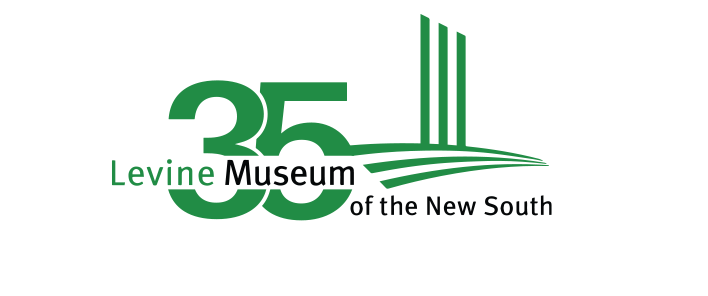The Betty H. Carter Women Veterans Historical Project highlights the contributions of women in the military. This interview with Millie Dunn Veasey primarily documents her service in the WAAC and the WAC during World War II, and her education and career at St. Augustine’s College afterward.
Excerpt:
HT: This is June 25, 2000. My name is Hermann Trojanowski. I’m at the home of Mrs. Millie Dunn Veasey in Raleigh, North Carolina, to conduct an interview for the Women Veterans Historical Project at the University of North Carolina at Greensboro. Mrs. Veasey, could you please tell me a few biographical facts about yourself? Where were you born and when?
MV: I was born here in Raleigh, North Carolina, Wake County, on January 31, 1918.
HT: Where did you live before you enlisted in the army?
MV: I lived here right in Raleigh. What’s the number of the street? 521 South Bloodworth Street here in Raleigh. Yes.
HT: Can you tell me a little bit about your family life before you went into the military?
MV: Yes. I am one of six children. My mother and my father are both Raleigh, North Carolina persons. They’re both from Wake County. My mother’s lived most of her life in Raleigh. During our bringing up, my mother was left to raise the six children because my father became ill. He was ill for seven years, and then he passed away at the age of sixty-three. At that time, when he became ill, there were really five of us because my brother was born—my father became ill in January of 1932, and McKeever, my younger brother, was born in July. He lived after that off and on. At that time, our older brother was—I’m not sure about that. I haven’t thought about this in so long. James must have been, at that time, about twelve. Anyway, that’s about that. I went to the Washington High School here in Raleigh.
HT: Did you work outside the house before you went into the military, or did you go right after high school?
MV: I worked right after high school. It was right after high school that I had a little job working with the county extension agent. That’s who I was working with at that time, right after high school. I worked with them during the time after school and then I went on into the army after that…
…HT: Do you recall why you joined the service? Do you recall seeing posters, or did you have family members in the military? What was the reasoning for joining, for you wanting to join?
MV: The reason was that, actually, I talked about these three girls, and just two of us really went down. Mary Alston is now up in Chicago, but she’s working for North Carolina Mutual. I think it was because my brother was in the army; however he did not care for me to come into the army. I joined because they really were asking, and that changed. When I got to Fort Clark, Texas, they were saying that the women were releasing a man for active duty. Of course, they said, “She came in, and she released her own brother to go overseas, to get into combat,” but that was the whole thing. When I went in, I was doing clerical work, and I really went in as a clerk typist. That is just about all I did. Most of the women, of course, a number of them–you were put into various units according to the experience one had had. A goodly number of black women were on the hospital wards, or they helped and that kind of a thing as assistant nurses. A whole number of people that I come in contact with now, most of the women or a goodly number of them in World War II, were actually in the Nursing Corps…
…HT: Do you recall where and when you enlisted, which year and month it was, and where you actually enlisted?
MV: I enlisted here in Raleigh in the December of 1942. Then I got the message in January to come for examinations in January.
HT: Where did you have to go to take the tests?
MV: We took the tests in Fort Bragg, North Carolina.
HT: Then you were sent to boot camp, I would imagine.
MV: Yes.
HT: Can you tell me about that? What was your first day like and that sort of thing?
MV: It was in Fort Devers, Colorado, in April of 1943. Of course, it was still very cold up there, the winter, and we were outfitted with uniforms, the very snazzy thing. At that time, we were the Women’s Army Auxiliary Corps. We were WAACs. W-A-A-C. I remember what happened. Because of the slenderness of my feet—see, I was wearing a triple-A, and they did not have those, I was always fitted with shoes that were a different kind. My first time, I think I remember, calling for reveille, it was pouring down rain, and we had to go down and be fitted for galoshes. Of course, these galoshes were just so big for me, and, of course, I weighed less than 100 pounds at that time, that they just overdrafted me. The next morning, when we called for reveille, the person came in and said, “Reveille.” I said, “Well, it’s just raining. We can’t be going out today.” She said, “It does not rain in the army. It rains on the army.” I remember that kind of day. [laughs]…
…HT: Do you recall what people in general thought about women joining the military? Were they in favor of women joining the military or not in favor?
MV: They were not in favor. Nobody was in favor. It was just a taboo, maybe, in the black community. However, another thing, I guess, that I would say now, that I didn’t think that I was going in to free a man to go overseas or to free one for combat duty. I did feel, though, as early as that, and you know, as you think back over these kinds of things, that if the army was selecting women, women were going in, and if there were black soldiers in the army, then why not black women in the army?…
_________________________________________________________________________________________
Citation: Veasey, Millie Dunn. “Oral History Interview with Millie Dunn Veasey.” Interview by Hermann Trojanowski. June 25, 2000. University of North Carolina at Greensboro, Betty H. Carter Women Veterans Historical Project, https://gateway.uncg.edu/islandora/object/wvhp%3A20826. Accessed June 5, 2023.
Questions
- Why did Mrs. Veasey join the military?
- What do you think the person in Mrs. Veasey’s story meant by saying “It does not rain in the army. It rains on the army.”?
- How did Mrs. Veasey feel in response to those who were against women joining the armed forces in World War II?
Vocabulary
Reveille: drum or bugle used early in the morning to awaken soldiers for assembly
Galoshes: waterproof shoes to wear over regular shoes
Overdrafted: in this case – way too big (for her feet)
Taboo: something improper, forbidden, or unacceptable





